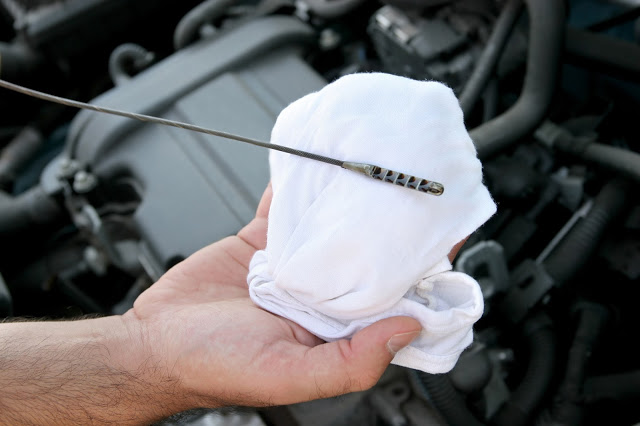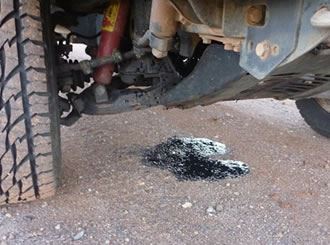- #granvilleoils #tradeshow #motortradeshow 1
- 0w/20 1
- A Bit Of Fun 3
- Abro 1
- Additive Packs 1
- Additive tanks 1
- Aftermarket 4
- Air Conditioning 4
- Animated Cars 1
- Antifreeze 9
- Article 2
- Auto Express 1
- Automatic Transmission 2
- Automechanika 7
- Automotive 35
- Autosol 3
- Autumn 2
- award 1
- Awards 2
- Baring 2
- blow moulding 1
- bottle 2
- bottles 1
- Brake Fluid 1
- Brakes 2
- Brand Focus 2
- Brands 1
- brochure 2
- business 1
- C3 2
- C4 1
- Capacity 1
- Car Wash 5
- carcare 2
- carcleaner 1
- carinterior 1
- Cars 5
- Catalogue 3
- Chemical 7
- chemical plant 1
- Cleaners 1
- Cleaning 10
- cockpit shine 1
- cockpitshine 1
- Cold Weather 4
- company 1
- company brochure 1
- Coolant 5
- Corporate 5
- cutting-edge 1
- design 4
- Dexos 1
- dubai 2
- dv5r 1
- eb2dt 1
- emergency puncture repair 1
- engine oil 3
- ep 1
- EV 1
- evolution 1
- exhibitions 2
- Facts 6
- Favourite Cars 1
- Flunkey 1
- Frankfurt 3
- FS 1
- fs pc 1
- fs rn 1
- Fuel 1
- Garden 1
- Gear Oil 3
- Germany 3
- Granville 10
- Granville bottles 1
- Granville brochure 1
- Granville catalogue 1
- Granville new tanks 1
- Granville Oil 42
- Granville Oil tanks 1
- Granville Oils 2
- Granville Oils Site 1
- Granville tank farm 1
- Granville tyre repair 1
- granvilleoil 4
- graphic 1
- Grease 2
- Gunk 1
- History 1
- homepage 1
- Hypalube 4
- identity 1
- ISO 14001 1
- James Bond 1
- James Holland 1
- logo 1
- Lubricant 18
- lubricants 2
- lubricating oils 1
- Machinery 2
- madeinuk 1
- Maintenance 20
- Manual Transmission 3
- manufacturing 1
- Mechanic 3
- mid saps 2
- motor 2
- Motor Factor 2
- Motor Oil 22
- motoring 3
- Motoring Problems 16
- mtf 1
- new engine oil 1
- new fully synthetic oil 1
- new Granville product 2
- new logo 1
- new packaging 1
- New Product 9
- new products 1
- NGLI 1
- Nova Car Care 3
- Nürburgring 1
- OEM 3
- oil 3
- packaging updates 1
- Paint 1
- Pets 1
- plastic 1
- PMF 1
- Polish 1
- Powertron Ultra 1
- premium oils 1
- product 2
- Product Feature 4
- Product Release 8
- production 1
- Products 3
- profinish 1
- puncture repair product 1
- Rain X 2
- Range 1
- rebrand 2
- rebranding 1
- recruitment 1
- refresh 1
- RN17 FE 1
- Screen Wash 1
- Screenwash 1
- September 2
- Show 1
- Sintron 1
- smartphone 1
- Spring 1
- staff 1
- stop start 1
- Summer 2
- tank farm 1
- tanks 1
- team 1
- Technical 22
- technolube 1
- Trade Show 5
- transmission 1
- Transmission Fluid 6
- Turtle Wax 4
- TV Cars 1
- tyre aid 1
- Tyre Safety 1
- Universal 1
- upgrade 1
- Valeting 9
- Veedol 10
- Veedol OEM 1
- Ventilation 1
- Wax 1
- website 2
- Windscreen 3
- Winter 3
- workmilestone 1
- 2024
- Dec 2
- Oct 2
- Sep 2
- Jun 3
- May 2
- Apr 6
- Jan 1
- 2023
- Dec 1
- Sep 1
- Jul 2
- Mar 4
- 2022
- Nov 2
- Oct 1
- Sep 1
- Aug 1
- Apr 1
- Feb 1
- Jan 1
- 2021
- Nov 1
- Aug 1
- Apr 1
- Mar 1
- Feb 1
- 2020
- Sep 2
- Jun 1
- May 1
- Mar 1
- Jan 1
- 2019
- Oct 1
- Sep 2
- Jun 1
- May 1
- Apr 1
- Mar 2
- Feb 2
- 2018
- Dec 1
- Sep 2
- Aug 1
- Jul 1
- May 1
- Apr 1
- Mar 1
- Feb 1
- Jan 1
- 2017
- Jul 2
- Jun 2
- Feb 2
- Jan 2
- 2016
- Dec 2
- Nov 2
- Jul 4
- Jun 5
- May 3
- Mar 2
- Feb 3
- Jan 2
- 2015
- Nov 1
- Oct 3
- Sep 1
- Aug 2
- Jul 4
Is There Such a Thing as Normal Oil Consumption?
Firstly it should be mentioned is that if you find your oil levels are depleting then it is either down to oil consumption or an oil leak.

Oil consumption is the 'burning off' of oil in the engine and is common in older vehicles or ones which have been subject to high mileage. Commonly this is caused by worn valve stems and seals, and worn piston rings which allows the oil to slip into the combustion chamber where it burns off. If this is happening you may see wisps of blue-ish coloured smoke coming from the exhaust. Oil consumption is almost certain to happen as the vehicle ages. You can maybe even expect to see some consumption occur if your engine requires an oil with particularly low viscosity, 0W/20 for example.
An oil leak, on the other hand, is much more serious. In this instance you may see puddles of oil underneath your vehicle, find that your coolant has turned dark and foamy, or the telltale signs of blue smoke coming from the exhaust. If you notice any of the symptoms above then it is worth getting your motor in for a check up before the problem develops.

src: imgur.com
Unfortunately because oil consumption is a normal phenomenon in older vehicles, gauging if the amount of oil disappearing from your sump between top ups is normal isn't as straight forward as you might think. Even if you have an oil leak, it could only be small and the amount of lubricant being lost may be deceivingly smaller than you might expect it to be.
The problem is that manufacturers don't provide much guidance on how much oil consumption you should expect to see because it differs so much between engines. Different manufacturers quote different amounts for what they consider normal consumption and they can differ significantly from each other.
If your manufacturer has made a recommendation as to how much oil consumption is to be expected from your engine it will most likely appear in your owners' manual. This being said, however, it's a good idea to check your oil level regularly so that you have an idea of what is 'normal' for your vehicle, that way it will be much easier for you to spot any potential leaks or spills.
One thing you should never do, however, is be tempted to use a oil with a higher viscosity than is recommended for your vehicle with the view to reducing oil consumption. In the long term this will damage your engine and result in costly repair bills.
Remember, if in doubt, always check your owners' manual and if you suspect excessive oil consumption consult a mechanical professional as soon as you can. Seeing to the problem in the short-term can help to prevent long-term damage and a costly repair bill if it's allowed to get out of hand.
--
This article is intended for general information only and should not be used as a diagnostic tool. Always consult your owners' manual before attempting any maintenance on your vehicle. If in doubt always seek advice from a mechanical professional
Article first published Wednesday 4th May 2016 12:00:00